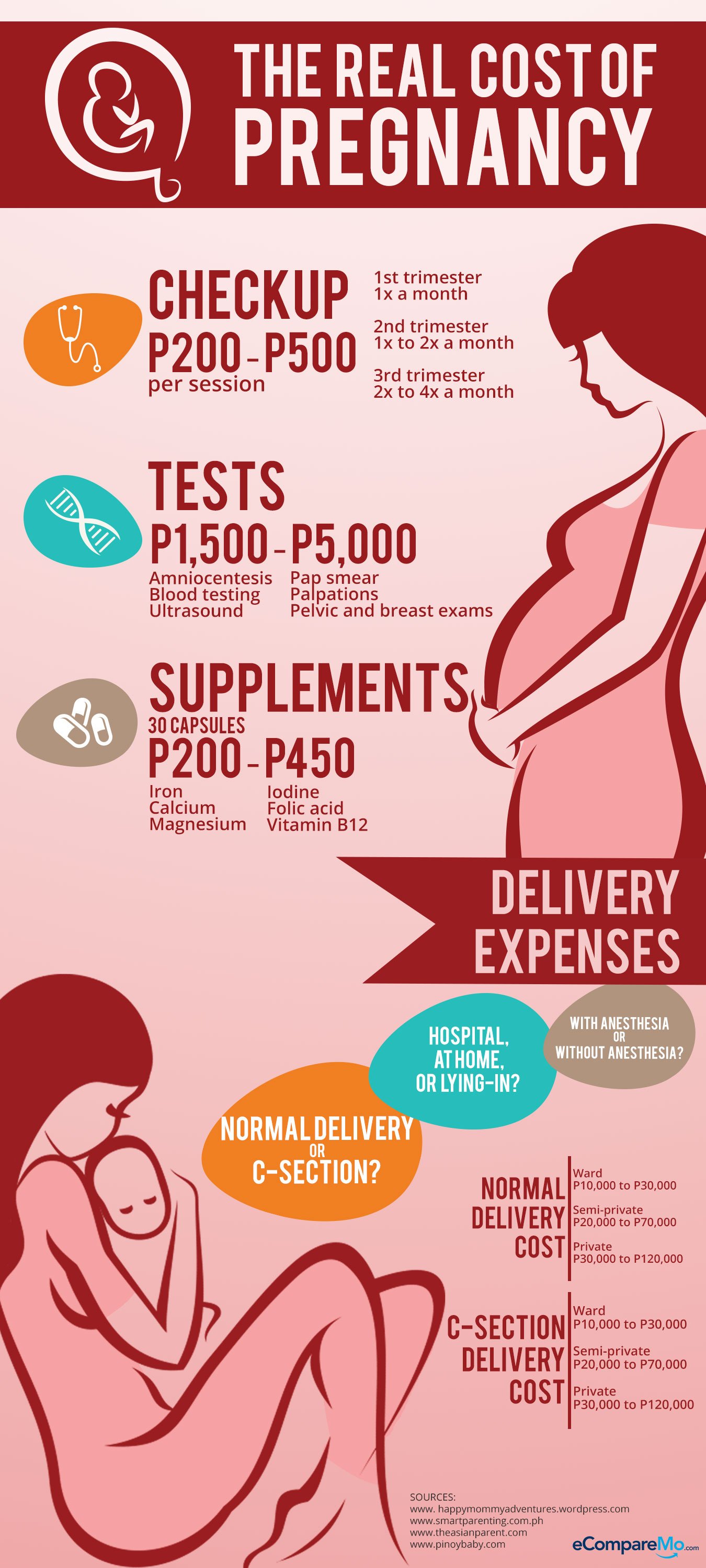INFOGRAPHIC: How Much Pregnancy Really Costs In The Philippines
3 min readLooking for a pregnancy calculator? Here’s something to guide you through one of the most exciting phases of your life.
It’s not too long ago when we put up a guide for first-time moms. This time, we address a few questions that were left unanswered, particularly for couples seriously mulling over conceiving their first-born child: What are the early signs and symptoms of pregnancy? How much does a pregnancy kit cost? Where can I find a pregnancy calculator?
Some parents think they have around nine months to prepare for their child’s future. However, the expenses don’t only come once the child is born, but right when the woman misses her period and the pregnancy kit shows two lines. Allow us to guide you through this exciting phase of your life with the infographic below.

Prenatal expenditure
It’s essential to monitor the wellbeing of the mother and the child while still inside the womb. The growth and development of your child are highly dependent on the mother’s health and through proper care. This includes trips to obstetrician-gynecologist for prenatal checkups to monitor your child and resolve complications, if there’s any.
Average cost of checkup: P200 to P500
For the first trimester, a monthly check-up will suffice. On the second trimester onwards, the appointments with the doctor will be more frequent—from monthly to bi-monthly to weekly. It is also noteworthy to mention that prominent private hospitals charge higher to patients compared to clinics. However, you can find a credible specialist and a medical institution that charge on a fair price for service and facilities.
The aforementioned amount does not include vitamin supplements and medical examinations yet. Tests typically include amniocentesis, blood testing, ultrasound, pap smear, palpations, pelvic and breast examinations. Supplements are essential to avoid deficiencies such as iron, calcium, magnesium, iodine, folic acid, and Vitamin B12.
Average cost of tests: P1,500 to P5,000
Average cost of supplements (30 capsules): P200 to P450
The mother’s body will be naturally compromised as she shares her nutrients with the child in her womb. While supplements are prescribed, expecting mothers can keep their bodies and their babies’ healthy by drinking milk and soy, and eating food rich in Vitamin C.
Delivery expenses
The main event. Alongside your constant prenatal expenses and savings for the baby stuff, you should also bank some cash for delivery. There are many factors to consider when deciding for the where’s and how’s.
Ward or private room? Pushing out a baby from the womb requires full exertion of a mother’s strength thus requiring uninterrupted rest. Get a private room if possible and if your budget lets you afford it.
Normal delivery or caesarian section? Some mothers have the option to choose a method. However, some medical cases will require a caesarian delivery, which is costly than the conventional procedure. Let your pockets be ready for such emergency.
At the hospital, at home, or lying-in? Talk to your ob-gyne regarding his/her hospital and clinic accreditation and choose what is most accessible from your home. Also, some expecting mothers prefer to deliver at home and call a midwife to facilitate the delivery.
With anesthesia or without anesthesia? Doses of anesthesia and the professional fee of anesthesiologist will also be deciding factors for the mother’s health as well as her financial capacity.
The average cost of normal delivery
Ward: P10,000 to P30,000
Semi-private: P20,000 to P70,000
Private: P30,000 to P120,000
The average cost of C-section delivery
Ward: P15,000 to P60,000
Semi-private: P40,000 to P80,000
Private: P50,000 to P150,000
Do not hesitate to talk to your doctor about the hospitalization expenses, professional fees, and other expenditures so you’ll know what to expect. Talk to your insurance provider and utilize your health insurance to get aid with your expenses. –Diana Lyn Balbalosa
